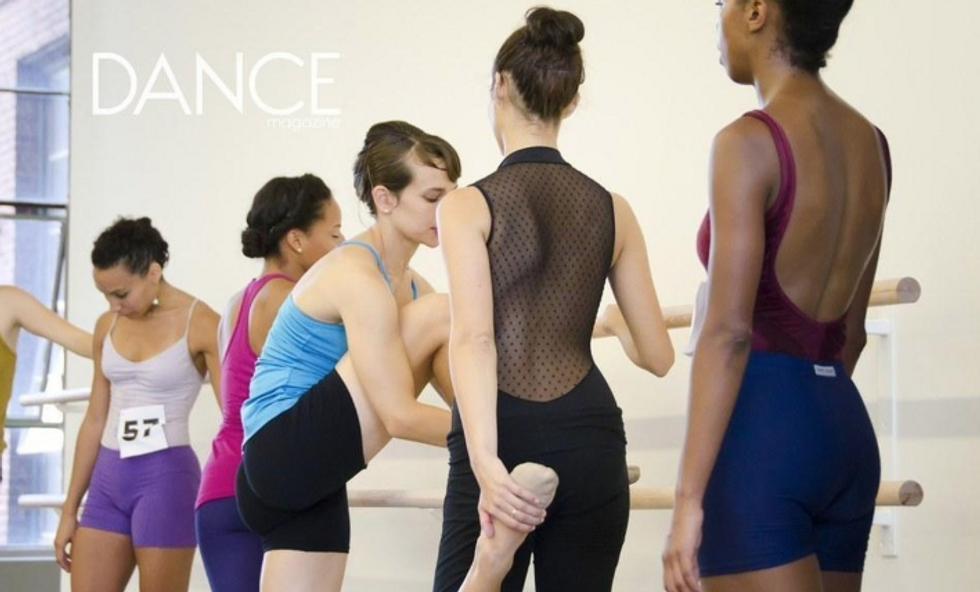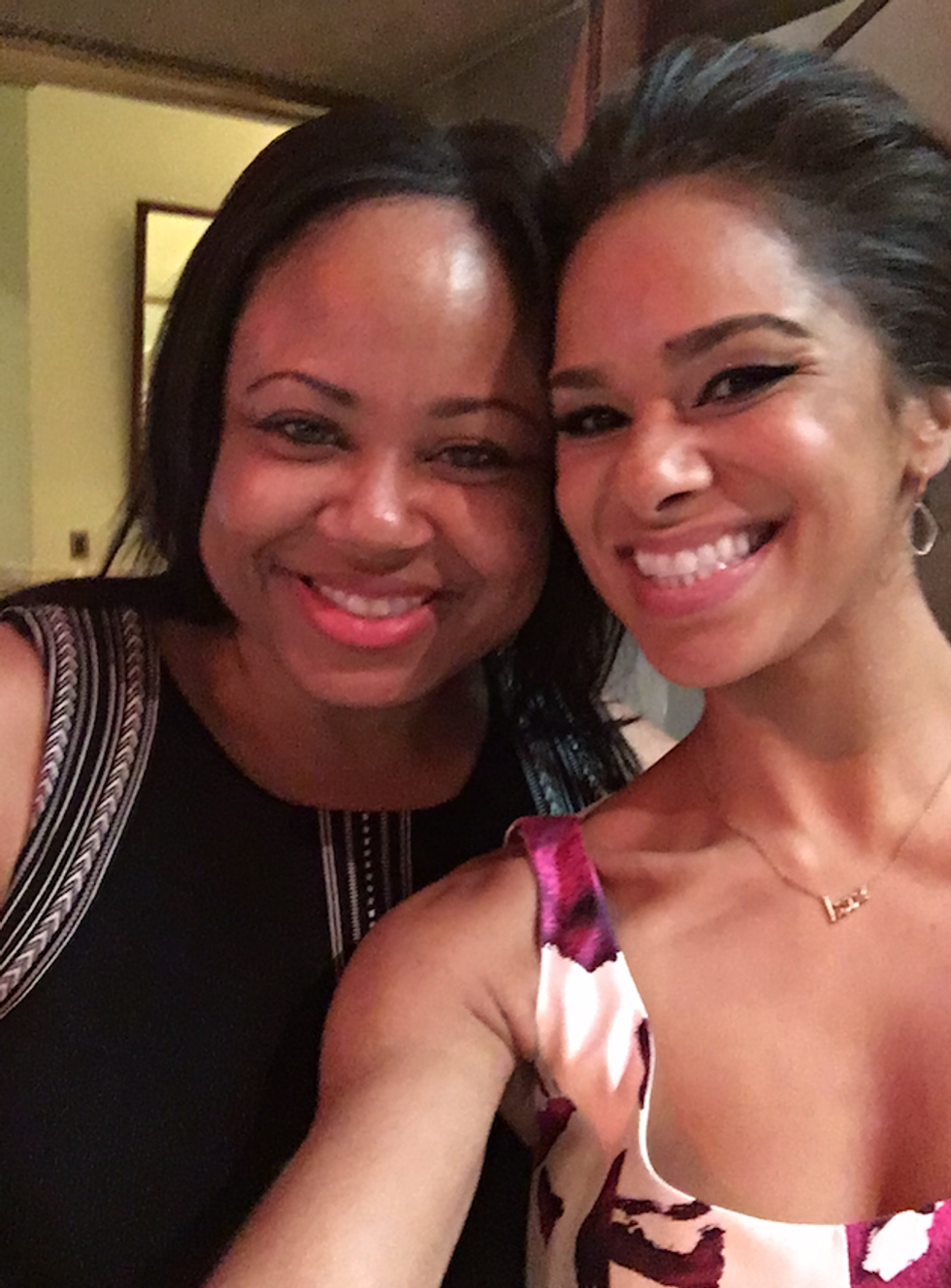How To Know If It’s Time to Get An Agent (Or A Manager)
It took Taeler Cyrus three tries before she found the right agent. She was performing with Ailey II when she signed with her first. “I got a couple of commercial gigs, but I wasn’t able to make it to auditions regularly, so that one let me go,” says Cyrus. On a recommendation from a friend, she found a new agent. “I didn’t get enough direction from them,” remembers Cyrus. “I let them go because of the lack of relationship.” On her third try, Cyrus met her match at McDonald/Selznick Associates talent agency. Three years later, Cyrus has booked gigs from “Saturday Night Live” to a Kanye West video to her most recent job dancing in the ensemble of An American in Paris on Broadway.
Dancers of all genres seek out representation to help them find commercial opportunities and book gigs for film, television and Broadway. Finding an agent to represent you—and getting work once you have secured one—has as much to do with talent as it does with hard work and availability. Agents represent performers, submit for auditions and negotiate contracts for dance jobs, while managers deal with overall career management, from leading a public relations team to negotiating contracts for non-dance gigs. Though some managers may act in the same capacity as agents, most work for dancers when their career has appeal beyond the world of dance.

Who Needs Representation?
According to Lakey Wolff, a founder of Lakey Wolff & Company, there are two categories of dancers that can benefit from having representation. The first type are dancers looking for work who are professionally ready. “You have to know that out of 100 people, you will likely be the one to book the job,” says Wolff. The second type of dancer is already employed in a professional company for most of the year, but is willing to make herself fully available during any layoff period. Some agents and managers will not work with dancers who have full-time employment with a company, but many do. “If the dancer is 100 percent willing to communicate when she is off and available, I will submit them,” explains Wolff.
What Do Agents Do?
Agents communicate with casting directors and are in the know about opportunities, auditions and upcoming projects. They submit your headshot, resumé and other materials to casting and can often schedule invited calls or general meetings beyond the required open calls. If you make it through to the final callback but don’t book a job, they will try to get feedback from casting directors to find out why and help prepare you for your next audition. Once a job is booked, they negotiate your contract and make sure you are paid correctly. A talent agency’s cut is typically 10 percent of the dancer’s total pay. For Cyrus, the advice on headshots she received from her current team at MSA, which includes four dance agents with different areas of expertise, was invaluable. “Getting the right headshot made the biggest difference,” says Cyrus. “My agency helped me figure out my look. Now I look a little older and I can do more styles, from sophisticated to sultry.” Agents are also there to push you. “It is my job to know a dancer’s skills better than they do,” says Wolff. “I had a dancer nervous about auditioning for Twyla Tharp, but I pushed her to go and she booked it.”
Find Your Match
While some agencies have periodic open calls to find new talent for their roster, many agents look for referrals from casting directors, choreographers and other dancers. “I have been lucky in that I have found agents through recommendations,” says Cyrus, “but I have been smart about who I’ve asked for help.” Don’t approach dancers who would be jealous or feel protective. Instead, ask friends of the opposite sex or colleagues who are not in competition for the same roles as you. Maybe they can recommend your upcoming show to their agent. Make sure you have a headshot ready and a reel that is easily accessible, so that anyone you do happen to meet is able to quickly see what you can do. “It is not just about getting any agent. You want to find the agent that is right for you,” says Wolff. “The joke is that it is really like dating or finding a doctor.” Agents can be as specialized or versatile as dancers.

Help Them Help You
Your agent or manager can only do so much—ultimately, your success is in your hands. “You have to be someone that people want to work with. I want to know if I send you to an audition, I am going to get great feedback,” says Wolff. Be diligent and smart with social media. Go to class regularly and take workshops with choreographers you want to work with. Let your agent know who you’ve met and who’s familiar with your work so they can make connections for you. If you’re auditioning for Broadway, make sure you’re working on your singing. “Dancers should know choreographers, teachers, who is getting cast,” advises Wolff. There is no shortcut to doing the hard work. As Cyrus puts it, “A friend said to me once, ‘Your agent only does 10 percent of the work.’ ”

What About a Manager?
Manager Gilda Squire first heard of Misty Copeland from a friend at a party. Her instincts told her that Copeland’s story was unique, and she decided to approach her about signing as a client. It would be two years of nonstop work before their first endorsement opportunity came about. “Some dancers don’t have extra time, but Misty is really great at multitasking,” says Squire. Managers typically have fewer clients and, because of that, may sign dancers to longer contracts and take a cut larger than 10 percent. If you have both an agent and a manager, that means that 20 to 30 percent of your income will go to representation, so your career needs to be big enough to warrant employing such a team. “When I talk to dancers, I remind them that they must put in the groundwork first,” says Squire. “Start building an audience, and use social media to make people more aware of what you are doing.”



